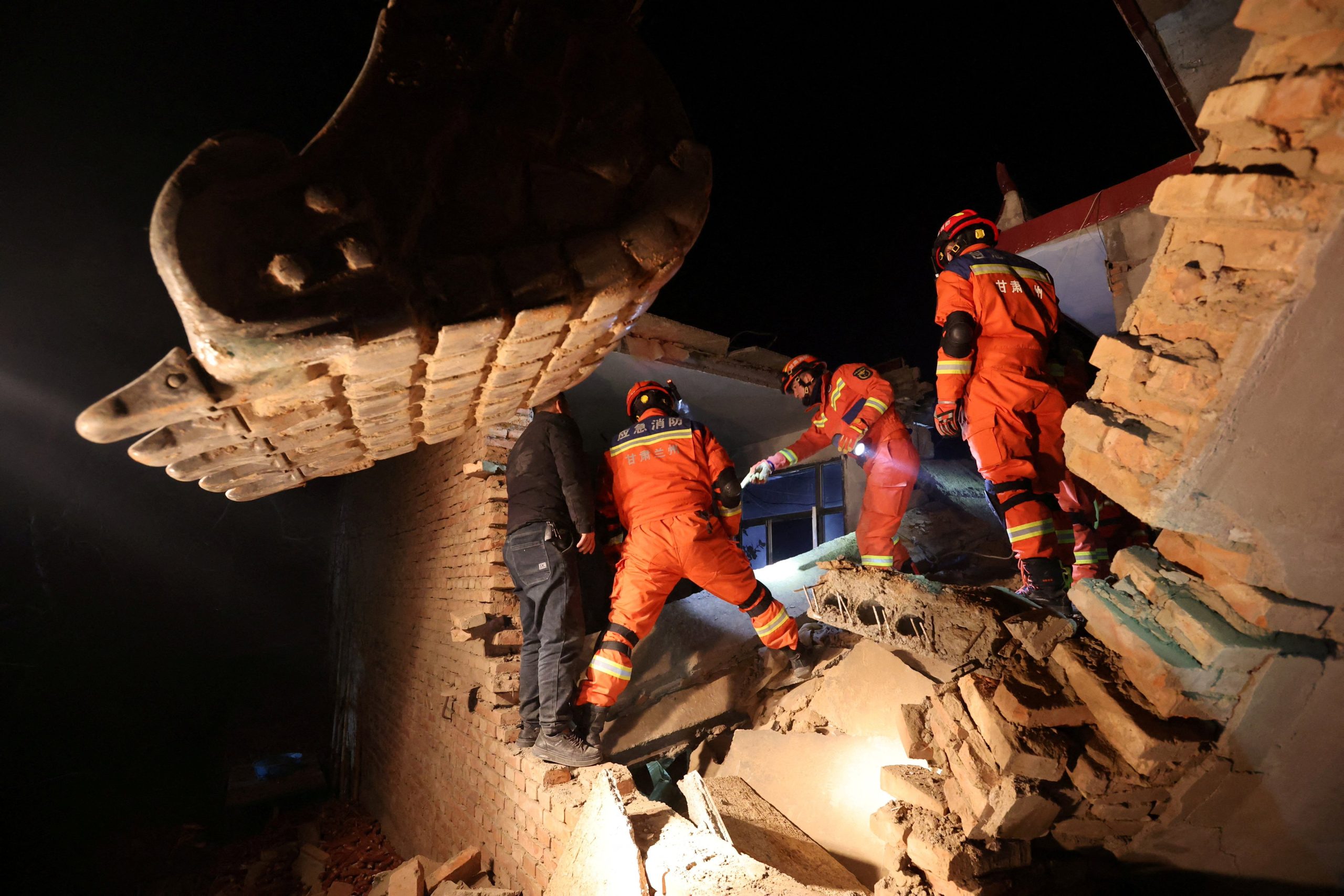A magnitude-6.2 earthquake shook a remote, mountainous county on the northern edge of the Qinghai-Tibetan plateau around midnight on Tuesday, resulting in the tragic loss of atleast 118 lives and leaving more than 400 people injured.
Rescue and relief operations are underway, with a team dispatched to assess the disaster’s impact. The exact number of missing individuals following the quake remains unknown, as per reports.
The western provinces, like Gansu, located on the eastern boundary of the tectonically active Qinghai-Tibetan plateau, often experience earthquakes. China’s most devastating recent quake occurred in 2008 when a magnitude-8.0 tremor struck Sichuan, claiming nearly 70,000 lives.
The earthquake hit Jishishan county in Gansu at 11:59 p.m. local time on Monday, reaching a depth of 10 km (6.2 miles), according to the China Earthquake Networks Center (CENC). The epicenter was just 5 km from the border between Gansu and a neighbouring province, causing strong tremors across many parts of Qinghai province.
Approximately 2,200 rescue personnel, including teams from the provincial fire department, forest brigade, professional emergency rescue teams, as well as military and police units, were deployed to the disaster zone.
China’s national commission for disaster prevention, reduction and relief and Ministry of Emergency Management have activated a level-IV disaster relief emergency.
Due to the high-altitude and cold weather in the affected region, rescue efforts are focused on preventing secondary disasters beyond the initial quake impact. Temperatures in Linxia, Gansu, where the quake occurred, dropped to about minus 14 degrees Celsius (6.8°F) on Tuesday morning. China is currently facing freezing temperatures due to a continuing cold wave since last week.
Damage to water, electricity, transportation, communications, and other infrastructures has been reported, though specific details are not yet available. The state grid dispatched 18 emergency repair teams to gradually restore power to the affected area.
Social media footage and images revealed rubble surrounding collapsed buildings and residents seeking refuge in open spaces, some wrapped in thick blankets, after being awakened by the quake. Residents left their buildings and sought safety in open areas for protection.
At a university in Gansu, students, dressed in warm down jackets, were spotted congregating in groups outside their dormitories after the quake.
Preliminary analysis indicates that the quake was a thrust-type rupture, one of three above magnitude 6 recorded within 200 km of the epicenter since 1900. By Tuesday morning, a total of nine aftershocks of magnitude 3.0 and above had been recorded, including two at least 4.0 in magnitude.
(Inputs from Reuters)














